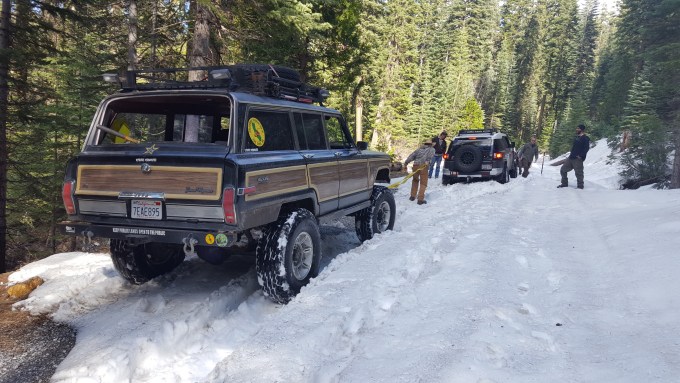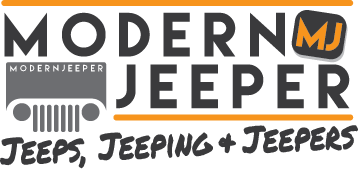

Be Aware! Things to Know About Trail Etiquette
Land Use UpdatesLifestyle April 23, 2019 Kurt Schneider

SOME UNWRITTEN RULES OF THE OFF-ROAD CULTURE

Have you ever had to start a new job? The first few weeks at that new company, you kind of need to lay low and get the lay of the land to see how things work there. Every company is different, and every company has a culture of its own with unwritten rules that its employees follow. If you don’t follow those “rules,” then you will not really fit in.
In some companies, cursing is ok or even encouraged, while in others, it is totally taboo. Are you allowed to sell your daughter’s fundraiser cookies at this new job or is that considered to be in bad form? What’s the dress code? Are there casual Fridays? Do the dancers at this club put glitter in their body lotion or is glitter not allowed? It takes some time to learn the culture of your new job, because many of these things are not necessarily in the employee handbook, it is just how it has always been done at that company.
The off-road culture also has a few “unwritten” rules of the trail that people who are new to off-roading need to learn, and people currently in the culture need to be reminded of. These rules are not the “written” ones you should already know, like treading lightly, wearing your seat belt and not drinking while driving,
They are more just part of who we are as a community and how our community behaves. It is an etiquette that is expected and a decorum that is demanded in the off-road community. Knowing and practicing these five rules of trail etiquette will not only help you to fit in with our off-road family, but it will also help you to understand our culture.
1. Be Prepared

Trail wait time.
Patiently waiting on Tim Green’s welder. Thank God for “Green!”
One summer I was wheeling into the Rubicon with a group of rigs, with the intention of making it to Buck Island to camp. As we crawled over the “Indian Trail” section, right before you drop down towards the dam into Buck, one of the younger kids in our group blew up a u-joint on his rear driveline. This is an easy enough fix, if the kid actually had a spare u-joint, which he didn’t.
U-joints are a common breakage item on the trail, and everyone else in the group carried spares for our own rigs, but unfortunately we did not have the exact one that he needed. So I told the kid, “No problem, just pull out your tow-strap and we will drag you into Buck Island and see if anyone there has one.” Sheepishly, the kid admitted that he didn’t have a tow-strap. With a groan, all of us put our hands to our heads in frustration and disbelief.
When you are on the trail, especially one as remote as the Rubicon, you NEED to be prepared. If you are not, you can really ruin a weekend for not just you, but all of your friends. Obviously you can’t drag in an entire parts rig with you, but you should know your vehicle and the common parts that it may break while wheeling.
Spare u-joints and axle shafts are a must, as well as a spare tire, which unbelievably some people actually wheel without. A tow strap, a Hi-lift jack and recovery gear are also a necessity. If you are wheeling in the snow and don’t have a shovel, you really should not be wheeling.
It is also important to carry the proper tools for your rig. Know exactly what you need if there is major breakage. I once spent a very cold night in the snow because I forgot to bring the right sized socket that I needed to swap out an axle. It is a good idea to also carry bolts that are common on your vehicle.
Furthermore, there are things that you do not want to be without on certain trails. On the Rubicon a spill kit, wag-bags and trash-bags are a must. A Ham radio is also a wonderful idea too. Again, it is near impossible to bring everything, but you want to try and cover as many bases as possible.
(More on what to expect on the trips like the Rubicon Trail here).
2. Help Others

Teamwork
If we really wanted to help Travis, we should have grinded off that stinger.
All the winners of the King of the Hammers Ultra4 race have one trait in common: they are all REALLY good guys. That is indicative of off-roading. You will find that nearly all of the people in our lifestyle are true, good people. Off-roading is cool because most of the people in our sport are cool.
On a different Rubicon trip many years ago, I pulled out of the little sluice box and turned right. But my rig didn’t. Getting out to inspect the damage, I found out that my entire steering box had ripped from the frame. Here I was in the middle of nowhere, with nothing to fix my issue, and miles of trail ahead of me to where we were planning to camp, in Rubicon Springs.
Almost on cue, a black and florescent green Jeep pulls up and a guy with a shock of blonde hair pops out of it. It was Jeff Arabia from Arabia’s Overkill Fabrication. “What’s going on guys?” he asked with a smile that was ear to ear. When I explained the problem, he immediately pulled a panel off his jeep exposing an on-board welder and trail-fixed my steering box on the spot.
It was not perfect, but it would at least get me to camp where I could work on it more and have more resources. He absolutely refused any type of payment. All he said was, “Well, if you see me in the Springs, you can float me a beer.” I made sure to find him in the Springs.
When you are wheeling on a remote trail in the middle of nowhere, you may need help. It is expected that wheelers help each other, or at the very least offer to help. If someone is stuck, give then a yank. If someone is pulled over to the side of the trail, say “hi” and ask if everything is all right with them.
It is customary to NEVER ask for money if you help someone, but generally a beer or two is in order when around the campfire. If you loan a part to someone however, it is expected that that person replaces it later on. (That kind of pained me to write that, because I have owed someone a leaf-spring for a couple years and I am VERY embarrassed by it.)
Helping people can be fun, but you also don’t want to ruin an entire weekend for yourself. The best way to look upon a person who is stuck or broken is to think “What if that was me?” and “Is this the type of person that seems like they will pay this forward?” then make your judgment call that way.
3. Don’t be a trail tampon.

Once again, the Wagoneer saves another Toyota.
I had a wedding to make. My friends Travis and Stephanie were getting married on the trail, in Rubicon Springs, and they gave me the honor of being their officiant, so I could NOT be late. My buddy Alfred and I were bounding down the trail, having a great time and ahead of schedule.
Everything was going great, until we got to the Big Sluice. There was a YJ having issues with an obstacle. We pulled behind him and waited patiently as he attempted that obstacle again, and again, and again, and again. On the Rubicon, you are not allowed to drive more than 35 feet from the center of the trail, there are some areas where you can pass, but in that specific spot there was no way to get around the guy.
Finally, I got out of our rig and walked up and explain the issue to him, to which he replied, “I think I got it, just let me try one more time.” He then proceeded to promptly pulverize his power steering. Now he was stuck on the obstacle, blocking the trail. We made the wedding on time, but man was I stressed out there for an hour or so.
Bottom line, do not plug the trail. If you can’t make an obstacle after a couple attempts, let the next guy go, especially if there are more capable rigs behind you. If you break down in the middle of the trail, do your best to get it over to the side where people can pass.
Only work on your vehicle in the middle of the trail if there is absolutely NO WAY you can have a buddy winch or tow you off to the side. It’s rude to make people wait. Also, if you approach an oncoming group of vehicles, normally the small group should pull over and let the larger group pass.
4. Don’t camp on top of people
When I was a little boy, my father ran the concessions in Yosemite National park. Very few people on this planet can say that they have lived in Yosemite Valley, even fewer can say they grew up there. I used to ride my bike past the campgrounds in the valley that were always completely stacked with park visitors.
The campgrounds would be filled to the brim with tents and RV’s, all on top of each other. The campsites were so close that you could hear the guy in the tent next to you snoring. Even as a little kid, I was dumb-founding by this. How can you enjoy nature and the outdoors when you are surrounded by hundreds of people? You may as well just camp in your backyard.

Knowing we are loud, the Kyburz Krawlerz camp WAY far away from anyone else.
Part of the allure of four wheeling is getting out into nature and into the middle of nowhere. It is about escaping from the hustle and bustle of the modern world. There are few things better than sitting fireside under towering pines and a night sky filled with stars. With the ability to wheel into an area that the average person can not, off-roading give you camping options with solitude. You are not surrounded by crowds like what is seen in Yosemite Valley.
One summer during the middle of the week, my boys and I packed up the Jeep and headed to the trail. We found a nice secluded spot near Buck Island Lake, unloaded the rig, put up our tents and re-built the fire pit. I was seriously looking forward to a relaxing evening with my two sons by the fire. After the sun went down, five or six rigs pulled up essentially right next to us, and they proceeded to set up their camp, the entire time talking loudly, blasting music and dropping F-bombs.
Now, I get that. When I am with my 4×4 club, we do the same thing, we are not the quietest people in camp, but these guys had the entire forest to camp in! Why camp RIGHT next to us?
When setting up your camp on the trail, give people their space. Obviously there are times when this can not be avoided, like if you are on the Jeeper’s Jamboree or at the King of the Hammers, but on a normal wheeling trip respect people’s privacy and give them some room.
5. It’s our trail, not your trail.

After being beamed with snowballs, Flat-lander Sean moved out of state.
I am not the perfect off-roader. Far from it. Despite wheeling for nearly my entire life and being so involved in land-use issues, even I occasionally slip and screw up on these unwritten rules. Especially with this one.
There are campsites that I have used for over a quarter of a century that I consider “mine.” There are sections of 4×4 trails that I have worked on many times during trail work parties, sections I have put my heart and soul into, that I am overly protective of. Occasionally when talking to other people in “my” campsite or on certain trails, I catch myself coming off with a kind of an “elitist” attitude, treating people like they are in MY area.
The thing is, none of those spots belong to me. Public lands are just that: public. They belong to all of us. It does not matter how much work I have put into a trail. If that trail is public, everyone else has just as much right to use it as I do.
There have also been many times where I have been on the opposite end of this breach of etiquette. While this trait is often more prevalent with other “elitist” user groups that believe their activities are “better” than ours, you can also unfortunately find it in our own community.
One winter wheeling trip, my club came upon a group of locals that were extracting a vehicle. Nothing out-right was said, but the “stink eyes” and condensing looks down the other group’s noses towards us said it all, even after we offered to help with the extraction. The sense of entitlement from them and the “this is OUR” area vibe was palpable.
Not only did it make my group very uncomfortable, (which I am sure was their goal), but we also left the encounter thinking, “What a bunch of jerks.” If this group is treating other off-roaders in this way, how are they treating all the other forest users? And how does that make our entire community look?
If you are a local to an area, or a trail regular, please drop the sense of “entitlement” when wheeling and interacting with other people. It does not matter if you have wheeled that trail since you were in diapers, that college kid in the beater Toyota has as much right to the trail as you do. Take him under your wing and educate him, but don’t be condescending, Always remember this song lyric, “This land is your land, this land is my land….”
Again, this is not a list of the written rules like wheeling responsibly and treading lightly, it’s more of expectations in off-roading behavior that are not often vocalized. With that said, I am sure that I missed something. If I did, please post it up in the comments!
##







![MJ Destinations: 3 Days in The Mojave National Preserve – Day Three [BONUS MAPS]](https://i0.wp.com/modernjeeper.com/wp-content/uploads/2024/02/Mojave-Day3-48-scaled.jpg?resize=70%2C70&ssl=1)






